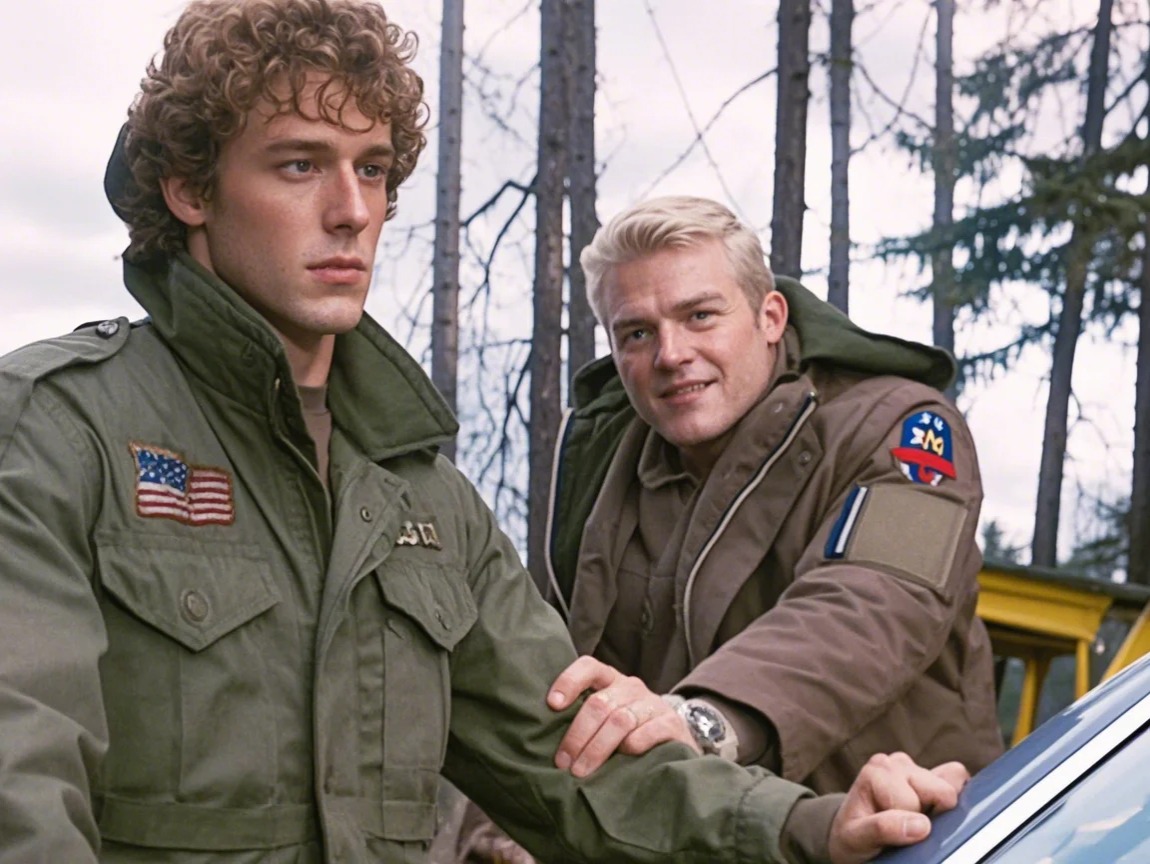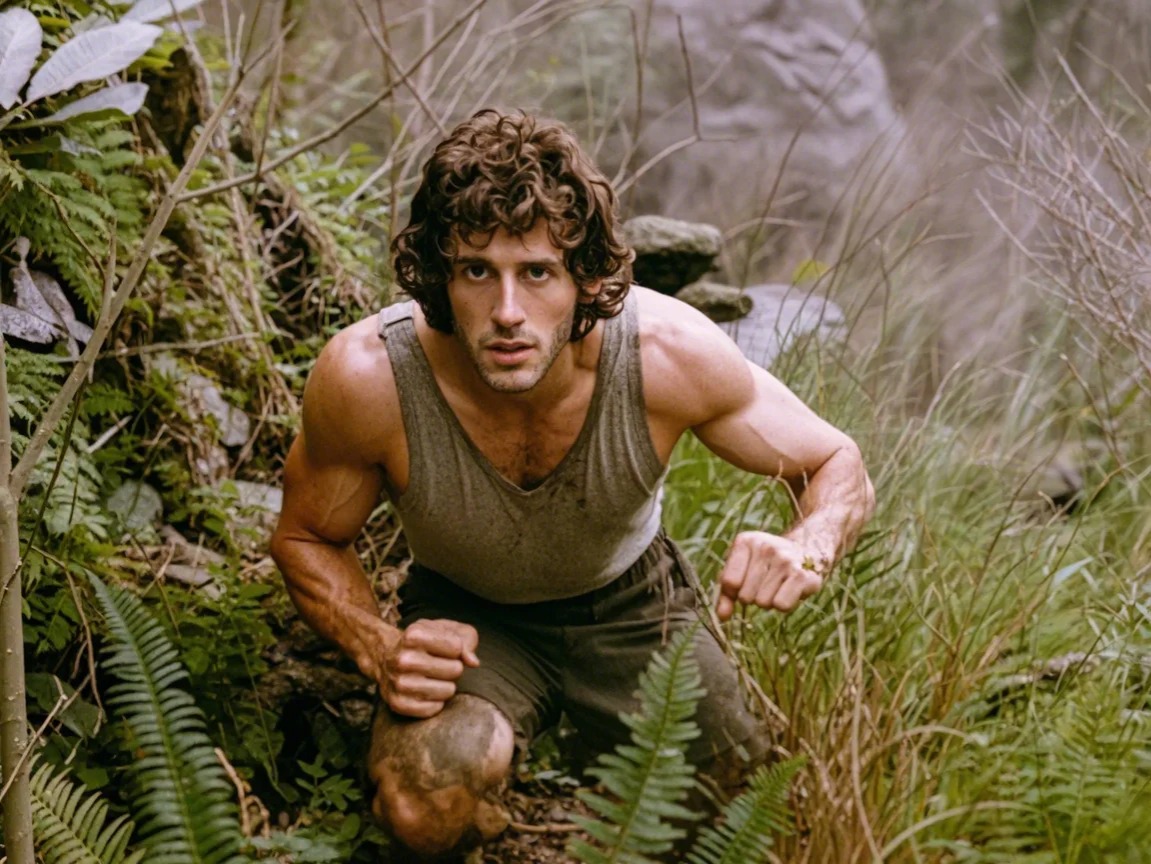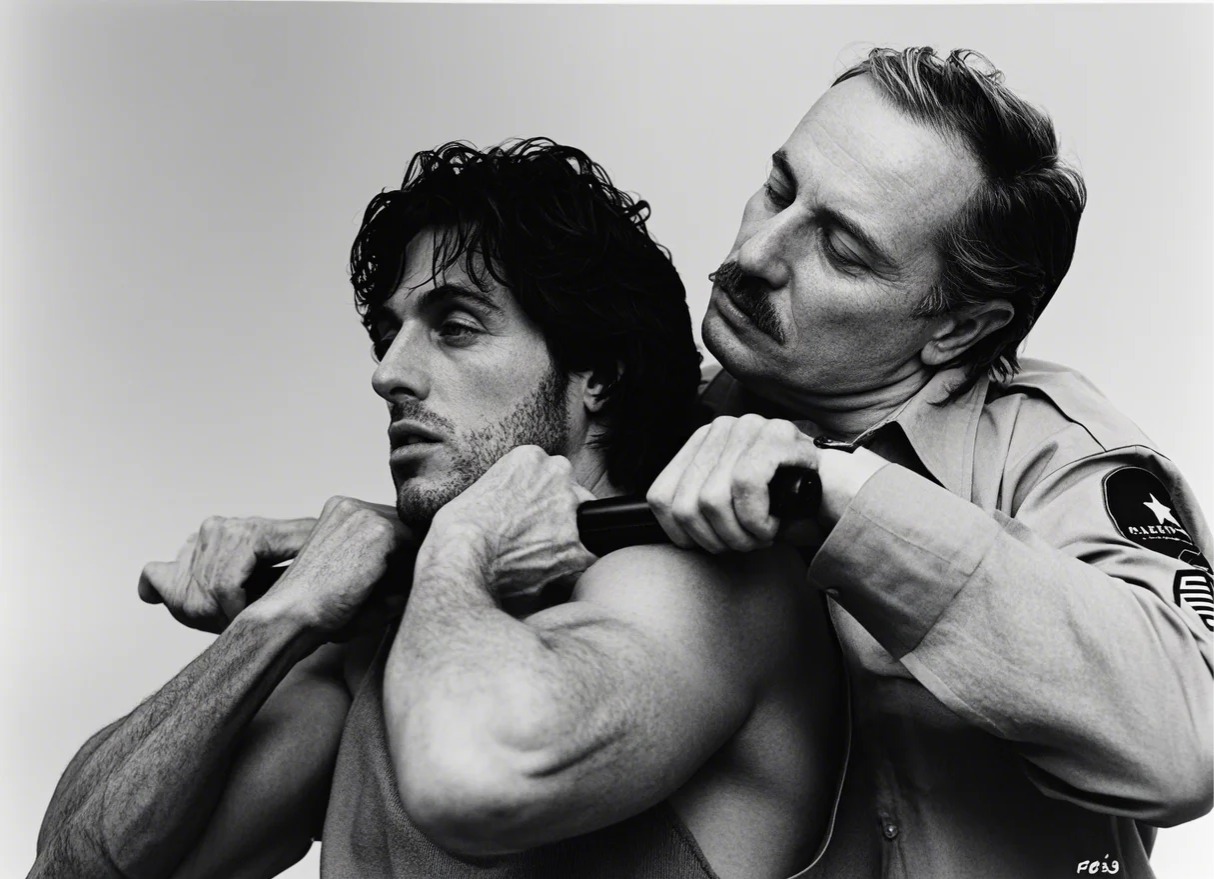“First Blood” (1982): The Birth of an Action Icon and a Haunting Tale of Survival
RAMBO: FIRST BLOOD Clip – “The Jail Escape” (1982)
When First Blood exploded onto screens in 1982, it introduced audiences to a new kind of action hero—John Rambo, a quiet yet deadly drifter haunted by the traumas of war. Directed by Ted Kotcheff and based on David Morrell’s 1972 novel, the film combined raw emotion, intense action, and social commentary, redefining the action genre and giving Sylvester Stallone one of his most iconic roles.
The Plot: A Soldier’s Fight for Survival
The story begins when John Rambo (Sylvester Stallone), a former Green Beret and Vietnam War veteran, drifts into the small town of Hope, Washington, searching for a fellow soldier. Instead of finding camaraderie, he is met with hostility from the local sheriff, Will Teasle (Brian Dennehy), who views him as a troublemaker. When Teasle arrests Rambo on dubious charges, it triggers a chain of events that spirals out of control.

Pushed to his breaking point by mistreatment and flashbacks of his time in Vietnam, Rambo escapes into the wilderness, using his unparalleled survival skills to evade the authorities. What starts as a simple arrest turns into a brutal manhunt, with Rambo pitted against an entire town’s law enforcement and the National Guard.
Amid the chaos, Colonel Trautman (Richard Crenna), Rambo’s former commander, steps in, warning the authorities that they are up against a man trained to survive and kill with devastating precision. As the conflict escalates, First Blood explores the psychological scars of war, the failure of society to reintegrate its veterans, and the thin line between hero and villain.
Rethinking the Action Genre
While First Blood delivers thrilling action sequences, it is more than just a typical shoot-’em-up. Rambo isn’t a superhero but a deeply flawed and damaged man. The film examines his alienation, PTSD, and the lack of empathy faced by Vietnam veterans upon their return home. This emotional depth set First Blood apart from other action films of its time, creating a character who was as vulnerable as he was formidable.
Stallone’s portrayal of Rambo struck a perfect balance between quiet vulnerability and explosive rage. His now-iconic monologue at the film’s climax, where he breaks down about the horrors of war and the loss of his comrades, remains one of the most poignant moments in action cinema.

Action and Atmosphere
The film’s action is grounded and visceral. Set against the rugged beauty of the Pacific Northwest, the cinematography captures the unforgiving wilderness where Rambo turns the tables on his pursuers. The tension builds as he sets traps, outsmarts his enemies, and transforms from hunted to hunter. The relentless pace and gritty realism make every encounter pulse-pounding and unpredictable.
Legacy and Impact
First Blood not only launched the Rambo franchise but also redefined action cinema. Its influence can be seen in countless films that followed, blending intense physical action with character-driven storytelling. Unlike the sequels, which leaned more into bombastic spectacle, First Blood remains a grounded tale of survival and resilience.

The film also sparked conversations about the treatment of veterans, highlighting their struggles in adapting to civilian life and the lack of support systems available to them. This layer of social commentary added depth to the action and helped the film resonate with audiences on a profound level.
Conclusion
With its gripping narrative, unforgettable action, and a career-defining performance by Sylvester Stallone, First Blood is a timeless classic that still holds relevance today. It’s not just the story of a man fighting for his life but a poignant exploration of a soldier fighting for his place in a world that has moved on without him. Decades after its release, First Blood remains a landmark in cinema, proving that even the loudest explosions can carry a deeply human message.
